Publications
Articles, publications, books, tools and multimedia features from the U.S. Institute of Peace provide the latest news, analysis, research findings, practitioner guides and reports, all related to the conflict zones and issues that are at the center of the Institute’s work to prevent and reduce violent conflict.
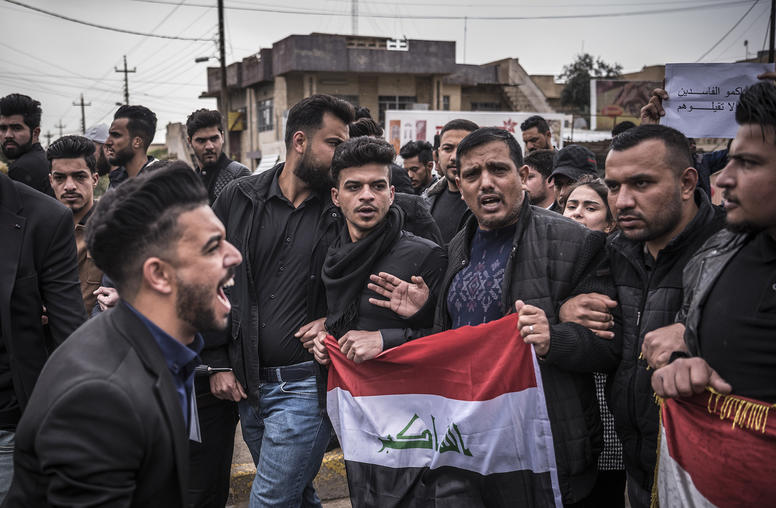
Iraq’s Democratic Imperative: Getting Provincial Elections Right
Iraq’s landmark 2018 national elections—the first since the military defeat of ISIS—presented an opportunity for a much-needed course correction for the country’s sclerotic political process. Unfortunately, that opportunity was not seized properly. The vote was marred by claims of widespread fraud, low voter turnout, a delayed results announcement and a protracted government formation process.
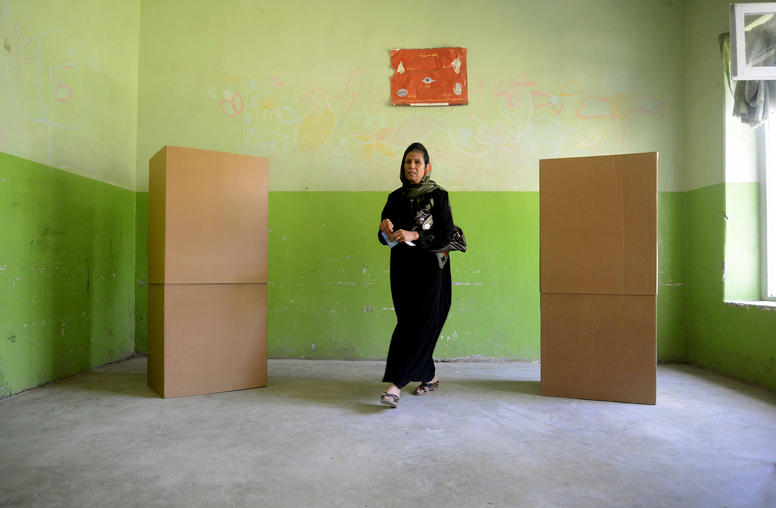
Afghanistan Still Has a Chance to Improve This Election
As the United States, the Afghan government and the Taliban maneuver toward a peace process for the country, the strength of the current Afghan government and political system will be affected by the credibility, in Afghans’ eyes, of the presidential election set for September 28. Yet the credibility of Afghan elections is weakened by unresolved allegations of criminal fraud—especially against the nation’s former top election officials—in last year’s parliamentary balloting. With just 53 days remaining before the presidential vote, time is now short—but Afghan authorities still can take steps to improve the prospects for an election that citizens might see as credible and legitimate.

Systems Thinking for Peacebuilding and Rule of Law (French)
Notre approche traditionnelle de la consolidation de la paix et de l’État de droit semble solide : des objectifs ambitieux, une injection de ressources, des équipes d’experts travaillant intensément. Pourtant nous semblons rarement aboutir à des réformes véritablement fructueuses et durables. Pourquoi nous enlisons-nous ? Une des réponses possibles réside dans notre façon de percevoir les systèmes avec lesquels nous travaillons. Nous avons tendance à traiter de nombreux systèmes de consolidation de la paix et de l’État de droit comme s’ils étaient des systèmes d’horloge, c’est-à-dire ordonnés, réguliers et prévisibles. En réalité, les environnements dans lesquels nous travaillons sont plutôt des systèmes de type nuage,en cela qu’ils sont désordonnés, irréguliers et imprévisibles.

Leanne Erdberg on Violent Extremist Disengagement and Reconciliation
While some will face criminal trial, many of those who traveled to live with ISIS but have disavowed its ideology will have to reintegrate into their communities. “We need to encourage a way to talk about them so that they can form new bonds with their communities,” says Leanne Erdberg. “Language has a very important role to play.”
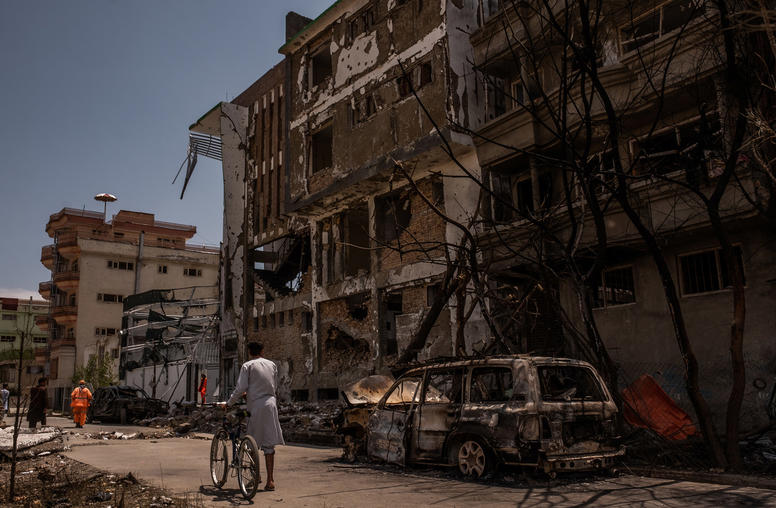
Taliban Talks and Violence Loom Over Afghan Presidential Elections
Campaign season for Afghanistan’s twice-delayed presidential elections opened in grisly fashion on Sunday. An insurgent attack on the Kabul office of President Ashraf Ghani’s top running mate, Amrullah Saleh, killed more than 20 and wounded at least 50. As the attack demonstrates, security will be a top concern during the elections. But, the ongoing U.S.-Taliban talks and nascent intra-Afghan negotiations further complicate matters. And on top of all that, Afghanistan’s post-2001 elections have been characterized by deep challenges, many of which remain unaddressed with little time to fix. USIP’s Scott Worden surveys the scene two months ahead of the vote.
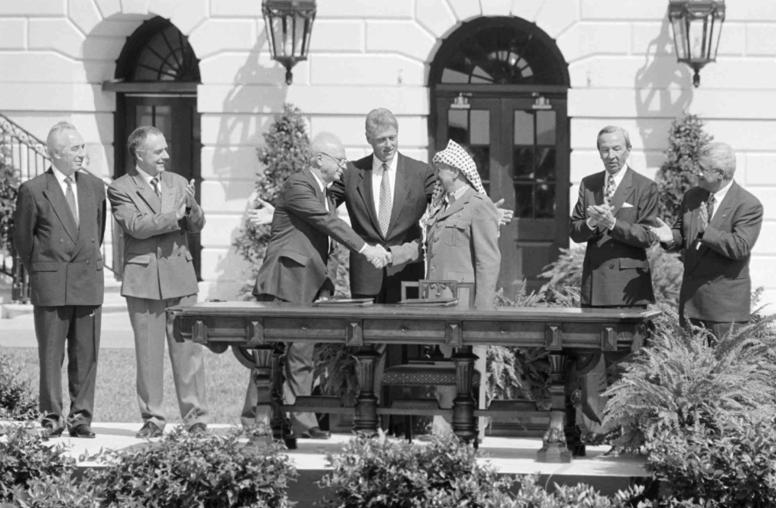
A Primer on Multi-track Diplomacy: How Does it Work?
If you asked someone to define diplomacy, chances are they would describe two governments meeting, shaking hands, sitting at a table, and negotiating an official agreement. But that more traditional view of diplomacy is only one iteration, often called track 1 diplomacy. Diplomacy can occur in a number of forms, or “tracks,” that engage various participants, from academics to policymakers to heads of state. In an increasingly complex global environment, peacebuilders and diplomats looking to address difficult policy challenges are increasingly incorporating track 1.5 and track 2 dialogues—often referred to as “back channel” diplomacy—into their strategies.
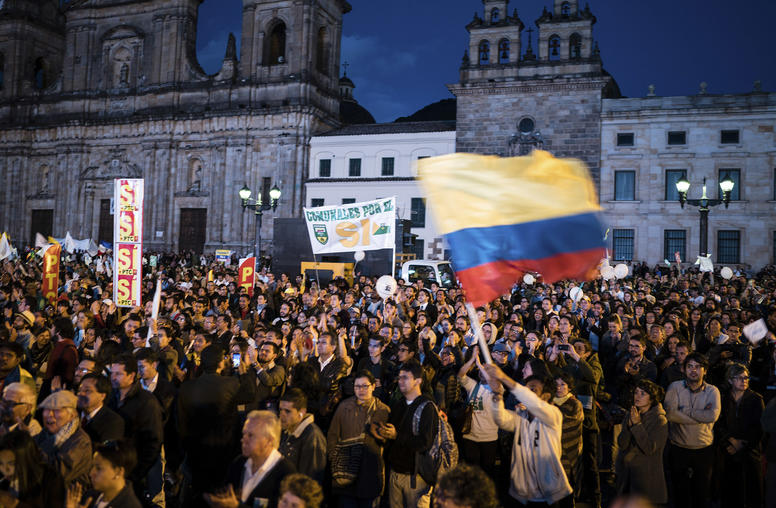
Colombians Rally Online in New Movement for Peace
It began with a few supporters of Colombia’s 2016 peace agreement meeting at a Bogota cultural center. That gathering, in January of this year, soon led to the creation of a WhatsApp group—a platform to discuss how to how to defend the interests of peace amid concerns about the policies of the new government. By mid-July, a spontaneous citizens movement of thousands of Colombian leaders was making its voice heard. Its objectives: to strengthen popular support for the previous government’s peace deal with the rebels of the Revolutionary Armed Forces of Colombia (FARC) and to support the peace process with the National Liberation Army (ELN).

Moeed Yusuf on Imran Khan’s Visit to Washington
Following Khan’s visit with President Trump, Moeed Yusuf says that the two leaders appear to have a chemistry that could improve U.S.-Pakistan relations. Although the two countries have been at odds over the Afghan conflict, Yusuf says Trump and Khan indicated they would “work together to find ways to break the impasse on Afghanistan.”
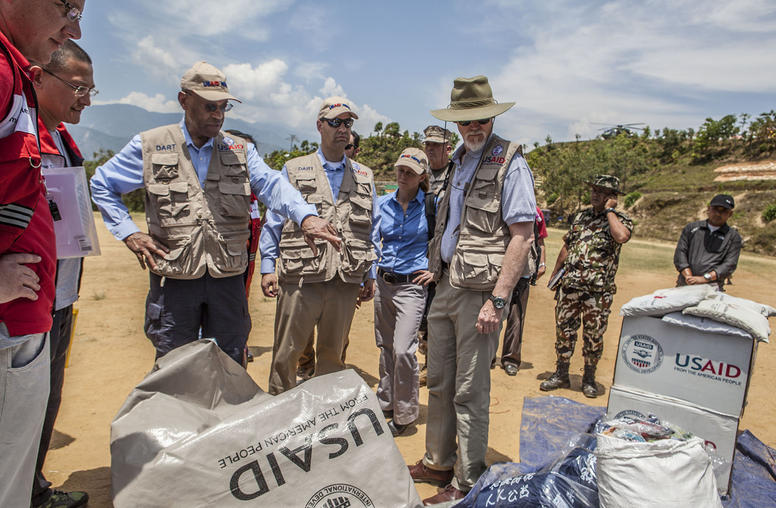
From How to Who: Reforming the Civilian Workforce for Prevention
It seems obvious that a U.S. foreign service or development officer would need a unique set of skills for dealing with the varied challenges they face in fragile countries. Delivering humanitarian assistance effectively in the wake of a natural disaster requires a mentality and approach that is different from advising a government in a fragile state facing mass unrest. But, the civilian workforce of the U.S government isn’t always equipped to perform the roles that policymakers require of them. Similarly, preventing conflict or extremism in countries where the United States has diplomatic missions requires a different way of operating—it may even require a different workforce altogether.
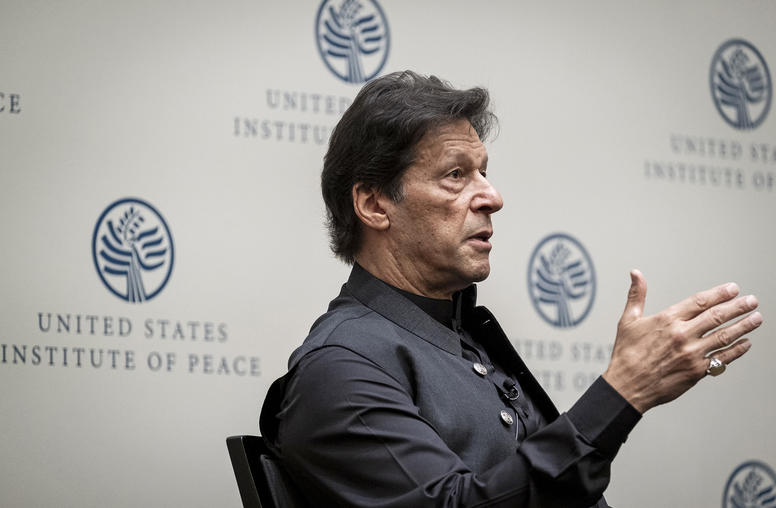
Pakistan’s Leader Vows to Press Afghan Taliban to Join Talks
Pakistan’s Prime Minister Imran Khan vowed to return home from his first official trip to Washington and meet leaders of the Afghan Taliban to persuade them to drop their rejection of peace talks that include the Afghan government. Khan spoke to an audience of U.S. policymakers, scholars and diplomats at the U.S. Institute of Peace following talks with President Trump in his first visit to the United States as prime minister. Khan discussed his meeting with Trump and hopes for an improved relationship with the United States, as well as Pakistan’s struggles with corruption and poverty, and relations with its neighbors.